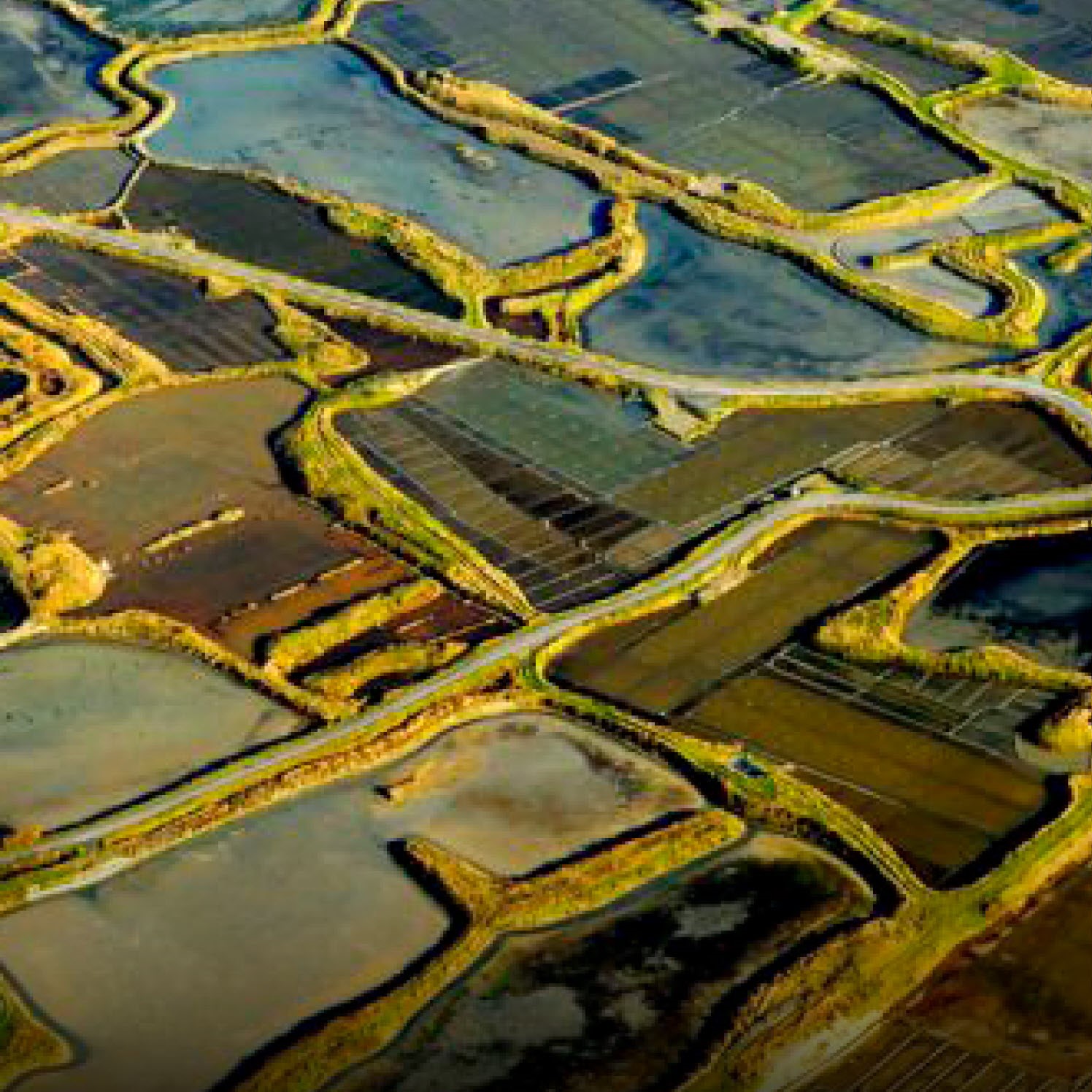YE
Member Since 1988
Yehouda Enzel
Professor, Hebrew University of Jerusalem
Member, G.K. Gilbert Award in Surface Processes Committee; Member, Luna B. Leopold Early Career Award Committee; Member, Marguerite T. Williams Award Committee; Member, Robert Sharp Lecture Committee
Professional Experience
Hebrew University of Jerusalem
Professor
1992 - Present
Hebrew University of Jerusalem
Prof. of Earth Sciences
Education
Doctorate
1990
University of New Mexico Department of Earth and Planetary Sciences
Doctorate
Honors & Awards
G.K. Gilbert Award in Surface Processes
Received December 2022
Citation
As a prominent and broadly recognized Quaternary geologist, Yehouda Enzel’s expertise includes fluvial geomorphology, neotectonics, limnology, hydrology, sedimentology, and paleoclimatology. Linking these different fields of expertise is a basic concept that Yehouda has been applying throughout his prolific career, with a special focus on how geological processes interact in shaping desert landscapes under variable climate forcing and how to use geological records in reconstructing paleoclimate and climate change appropriately. To address these first-order fundamental questions, he combines his deep knowledge in a wide range of fields with his unparalleled ability to collaborate with experts in related fields. This interdisciplinary approach opened new scientific frontiers in the research of paleoclimate and has significantly advanced the Earth science research community in understanding floods and paleofloods, sea level and lake level regressions, and transgression processes associated with climate change and landscape evolution. This highly interdisciplinary and well-funded research has been documented in more than 180 published papers and three major books, including the authoritative Quaternary of the Levant: Environments, Climate Change, and Humans (Cambridge University Press, 2017).
Yehouda is highly visible internationally; nearly all his research has involved highly productive collaborations with numerous researchers from across the globe. He has worked closely with scientists and students from the United States, Israel, Spain, Italy, India, Namibia, Australia, Germany, and the United Kingdom. He is a perfect facilitator of these collaborations, involving a great many young researchers representing ethic, gender, and cultural diversity. He has been very active in multiple scientific societies (AGU, European Geosciences Union, Geological Society of America, International Union for Quaternary Research, and the British Society for Geomorphology), serving on important committees, panels, special sessions, and editorial boards for many of these organizations worldwide. Through multiple visiting appointments, invited lectures, and research campaigns, he has exemplified the very best in Earth process science. As head of environmental studies (2006–2011) and chair of the Institute of Earth Sciences, Hebrew University of Jerusalem (2015–2019), Yehouda has led one of the world’s top Earth science educational organizations. His 45 graduate M.Sc. and Ph.D. students are making major contributions to Earth surface process studies, and generations of his students are themselves now leading excellent research groups in academic institutes in Israel and worldwide. With his scholarly breadth, interest, wide knowledge, scientific enthusiasm, curiosity, and original ideas, Yehouda Enzel continues G. K Gilbert’s scientific approach in advancing desert geomorphology and quantitative geomorphology in its wide and holistic sense.
— Rivka Amit, Geological Survey of Israel, Jerusalem
Response
Thank you, Rivka. I am deeply honored and humbled to join the esteemed past recipients of this award and to be the first person from outside North America to receive it. Gilbert’s seminal writings influenced me long before I first stepped on U.S. soil.
As a teenager visiting the hyperarid Sinai Peninsula, a group of geologists I met by chance kindled my interest in Earth sciences, a field I knew nothing about. I later enrolled in the Hebrew University where Aaron Yair, Asher Schick, Ran Gerson, and Dan Yaalon instilled in us the importance of field-based observation and measurements; they were giants in research, although, without perspective, I did not know it then. They and overseas visitors, including Luna Leopold, Reds Wolman, and Bill Bull, drew me into Earth surface processes and arid regions with their enthusiasm, knowledge, and experience. I have to tell you, it had my father worried. He asked, “What are you going to eat—stones?” (Subtext: Can’t you become a doctor?)
My close colleagues, too, have had tremendous impact on my research, first among them Rivka Amit, my research partner and dear friend. Currently facing difficult times, Rivka and her wonderful family are in my thoughts. I thank her and my former students for nominating me, along with the conspiring others. (I have my suspicions…thank you!)
It took time for me to realize the cumulative impact mentors, peers, colleagues, and students had on my career. I enjoyed their generosity in sharing ideas, time, and joint research. The long journey was fun, but it was also so much more. I was a doctoral student in New Mexico, a postdoc in Arizona, and returned as a professor to my alma mater in Jerusalem. Along the way I accumulated colleagues, friends, and research partners for life. I owe my career to several mentors: Steve Wells, Roger Anderson, Vic Baker, and other remarkable scholars I met in their labs. They opened doors and overturned rocks to reveal this fascinating field. Working in Israel and elsewhere, and during sabbaticals in Seattle, Sydney, Reno, Florence, and currently Athens, I have met great researchers who enrich my thinking. And above all, I am immensely proud of my truly outstanding group of students; I try to share with them the kindness I experienced.
Lisa, my loving wife and partner in the past 30 years, was exceptionally supportive, allowing me to run around the world while our sons Uri and Omer were growing up, and growing into exceptional young men. My achievements are theirs.
—Yehouda Enzel, Hebrew University of Jerusalem, Jerusalem
See Details
Close Details
Publications

Impacts of Rainstorm Intensity and Temporal Pattern on Caprock Cliff Persistence and Hillslope Morph...
Hillslope topographic change in response to climate and climate change is a key aspect of landscape evolution. The impact of short‐duration r...
February 04, 2024

The Impact of Extreme Rainstorms on Escarpment Morphology in...
October 10, 2023

SatVITS‐Flood: Satellite Vegetation Index Time Series Flood ...
September 11, 2023

Abrupt Contraction of the Indo‐East Asian Monsoons Ended the...
November 21, 2022

Reduced Rainfall in Future Heavy Precipitation Events Relate...
December 29, 2021
AGU Abstracts
Abrupt Expansion and Contraction of the East Asian Monsoon in Response to Gradual Insolation Forcing
ADVANCED UNDERSTANDING OF TROPICAL-SUBTROPICAL HYDROCLIMATE CHANGES DURING THE PLEISTOCENE, HOLOCENE, AND ANTHROPOCENE II ORAL
paleoceanography and paleoclimatology | 12 december 2022
Yonaton Goldsmith, Hai Xu, Narantsetseg Tserendash...
Rain-belt migration, and in particular monsoon migration, are a cardinal, yet under-constrained aspect of climate change. To evaluate how and why the ...
View Abstract
A Millennium of Stability during Abrupt Lake-level Fall in the Lateglacial Dead Sea
HIGH-RESOLUTION SEDIMENTARY ARCHIVES AND THE DETECTION OF ABRUPT ENVIRONMENTAL CHANGES I ORAL
paleoceanography and paleoclimatology | 16 december 2021
Daniela Müller, Ina Neugebauer, Rik Tjallingii, Ma...
In the Levant, a steep climatic gradient from sub-humid Mediterranean to hyper-arid Saharo-Arabian climate occurs directly within the Dead Sea (DS) wa...
View Abstract
Determining Bathymetry of Shallow Ephemeral Desert Lakes Using Satellite Imagery and Altimetry
REMOTE SENSING OF RIVERS, LAKES, RESERVOIRS, AND WETLANDS II
hydrology | 07 december 2020
Yehouda Enzel, Moshe Armon, Elad Dente, Yuval Shmi...
Drylands around the globe are characterized by interior drainage systems terminating at shallow desert lakes or playas. These remain mostly dry but fi...
View Abstract
Volunteer Experience
2023 - 2024
Member
Robert Sharp Lecture Committee
2023 - 2024
Member
G.K. Gilbert Award in Surface Processes Committee
2023 - 2024
Member
Marguerite T. Williams Award Committee
Check out all of Yehouda Enzel’s AGU Research!
View All Research Now


